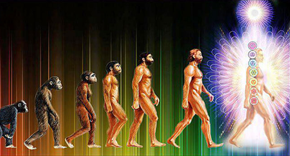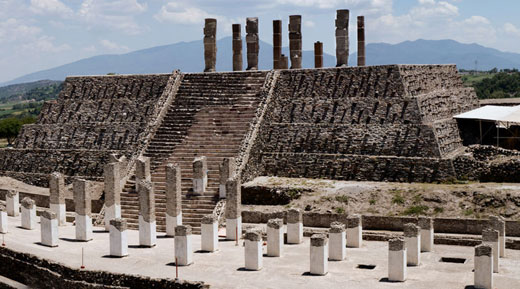David Deida is best known for “bringing sexy back” to contemporary spirituality, and now in his latest offering he’s bringing real life back.  Instant Enlightenment contains a vast array of subjects that other ‘spiritual’ teachings fear to touch – oral sex, swearing, car crashes, death, masturbation, to name a few. These taboo areas get the much-needed shot in the arm they deserve. Each chapter is poetically precise, humorous, and challenges the reader to bring their awareness to life experiences that would ordinarily make us contract and shut down. It is in these moments that our separation to ‘what is’ gets easily forgotten. Can you remember to stay open and loving in the midst of extreme suffering – and banality? This is the core of Deida’s teaching: feel open to what you resist, deny and recoil from. What could simply look like a throwaway, aphoristic pocket book turns out to be a whole lot deeper. The way to read this book is by randomly dipping into any chapter, reading it slowly and contemplating its content. Deida’s words and enlightenment will undo you–instantly.
Instant Enlightenment contains a vast array of subjects that other ‘spiritual’ teachings fear to touch – oral sex, swearing, car crashes, death, masturbation, to name a few. These taboo areas get the much-needed shot in the arm they deserve. Each chapter is poetically precise, humorous, and challenges the reader to bring their awareness to life experiences that would ordinarily make us contract and shut down. It is in these moments that our separation to ‘what is’ gets easily forgotten. Can you remember to stay open and loving in the midst of extreme suffering – and banality? This is the core of Deida’s teaching: feel open to what you resist, deny and recoil from. What could simply look like a throwaway, aphoristic pocket book turns out to be a whole lot deeper. The way to read this book is by randomly dipping into any chapter, reading it slowly and contemplating its content. Deida’s words and enlightenment will undo you–instantly.
-Vijay Rana, The Watkins Review
The Watkins Review: What’s the inspiration behind writing the new book, can you say a bit about the genesis of the project?
David Deida: Things are changing so quickly today with the Internet and our bite-size, fast food kind of culture All of us collectively – including me as a specific agent – can find new ways to touch people and transmit something that has more humour and depth, but is also light, quick and easy to digest. I wanted each chapter in Instant Enlightenment to be really tiny and I wanted the book very portable. I also wanted to make the chapters cover a wide range of subjects that you can’t find in most places: How do you transform oral sex into openness for all beings? How to deal with jealousy? What spiritual practices can you do while you are shopping? How can you transform the energy of swear words? I wanted to present spiritual practices that were unavailable anywhere else, but in a physical form that was easily portable and in a writing-style that was bite-size and quick to metabolize.
I really liked the format; I liked the short chapters with the exercises that challenge the reader to look at certain issues in a new way. I just wondered how you would encourage the reader to use the book?
A reader might be on the toilet when they open the book for a quick jolt of smiling depth. Or, they’re at the airport and they open it for a refreshing reminder. When they have a few seconds and they want a fast and deep dose, they would just open it. It’s not the kind of book that one would necessarily sit down and read cover to cover. Each chapter takes only a few minutes at most to read, so it’s the kind of book to pick up throughout the day for a delicious morsel, a fast and humorous chapter or two.
Sure. I’ve got some favourite chapters: ‘Hate’ and ‘Age’ particularly struck a chord with me. I just wondered if there were any chapters that you particularly enjoyed writing and, if so, why?
We can say that each of our egoic structures is somewhat stuck or locked, so we need different keys for those different kinds of locks that keep our heart closed. In each of Instant Enlightenment’s short chapters, I tried to write quite diverse approaches. Certain chapters might really touch your heart and provide a key to open your lock, but they’d be different chapters than those that would touch and open your neighbour’s heart.
And what about the title ‘Instant Enlightenment‘; is that just a catchy title that you want people to respond to quickly, so they would think ‘I could really get that’?
One of the reasons for the title is that it’s humorous to the people for whom this book was written. Anyone who’s too uptight or rigid about their spirituality probably wouldn’t even open the book because they’ll likely think it’s a schlock book or glib and superficial. But, you know, enlightenment is instant in a certain way, as an always accessible yet often brief state rather than as a more or less permanent stage, to use Ken Wilber’s language. In general, significant spiritual stages often require decades, some might even say lifetimes, to mature into stability. But as a ‘peek’, as a profound relaxation in love and truth, that moment of kensho – or whatever you want to call the overwhelming insight or relaxation in love, of ‘aha’ – that’s always instant in the ever-present moment, and then it has to be practiced to become stable. You might need a well-designed set of practices to engage year after year, as well as relationships with friends and teachers and everything else that goes with true maturity blooming throughout a lifetime. I titled this book Instant Enlightenment because, on the one hand, the state of enlightenment as opposed to the stage of enlightenment is instant, but also as a kind of tongue-in-cheek, humorous, tipping of my hat to today’s microwave, plug and play, or short-attention-span cultural style.
The thing is you’re including real, gritty things. The chapter ‘Mangle’ is to do with being in a car crash, and there are chapters on swearing and oral sex, so it’s really bringing spirituality into the here and now, but in a very real way and sometimes even shocking…
The point was to address very real issues that are not usually engaged in more traditional spiritual practices. You’re driving down the street and you see a car accident – everyone does a rubber-neck, everyone doesn’t want to look but they look, and in that moment of dreadful fascination most people lose their heart openness. Their awareness becomes narrowed by seeing and feeling this disgusting, shocking wreck – why? Here’s a moment we could work with spiritually. How do you deal with this moment of horrific vision? These days all you have to do is turn on the TV to see people mangled, just like in that chapter, lying in puddles of blood. I’d be sitting with my family and friends, they’d watch this on TV and it would darken their mood, naturally, it’s a horrible thing. It would actually close their heart rather than open it. And it became obvious to me that this is the world we live in. We are all subject to mangled bodies on TV, on a daily basis, so how do we work compassionately with our daily experience, both pleasurable and horrific? How do we convert each real moment of our daily experience into a moment of practice and enlightenment? This was my approach, to take some of the more difficult aspects of our daily life that aren’t usually engaged spiritually, and really try to address them directly so people have a sense of how to practice with them.
Could you tell us a bit about that practice, because that’s really fascinating. Taking those extreme moments, or just normal moments even, because they are, like you’re saying, they are a part of our lives. How would you do that, how would you stay open?
The first step, of course, is to feel your current experience without pulling away or closing down. Just feel entirely. Feel without guarding your heart. So when you’re seeing a mangled body in real life or on TV, the first thing is to feel how you feel without adding even more closure. What happens to your breath? What happens to your belly? Do you tighten, do your eyes squint, does your jaw grind? What goes on in your head? Become acutely intimate with your response as well as anyone else’s you happen to be with, staying in touch with the whole situation. To remain intimate with textures of this present moment and feel everything completely, rather than wall yourself off from it, is a major step toward true spiritual practice in any moment. And when you stay with what you are really feeling in body, heart, and mind, then there are a number of ways to go with it, and each chapter presents different ways. You could internally circulate your energy so it doesn’t get caught in tight parts of your body. You could breathe more deeply because your breath is a connection between the more gross and subtle aspects of being. There are a number of specific ways you could practice. But all of the practices are used so you don’t separate yourself away from experience as if you were an invulnerable and isolated separate-self in this present moment. Most spiritual practices are actually counter-practices to the separation you are already “practicing;” they are ways to help you relax this act of separation, once you realise that you’ve contracted yourself into your own implosion.
One thing I get from that and from your other books is that you talk a lot about feeling open and feeling through these moments and indeed life. I just wondered – it took me quite a while to unclench my emotional centres, so to speak. I had to do about 10 years-worth of intense emotional release bodywork. I was wondering, for people who haven’t done that, is it possible to feel open, or are we all just repressed?
Ten years is pretty short, by the way [laughs]. Yes, we are all doing what you’re describing, clenching into tightness at some level, physically, emotionally, mentally, even spiritually. So you’ve described it at the physical body level where we can develop these knots of tension. The entire body can tense up; your breath can also tense up, your mind, your emotions, your subtle body, your internal yogic nadis – these are not physical but are energetic flows – these can also tense up, and all of these reactions of tightness can be met by a practice at their same level of density or “thickness.” The physical body is the densest; I don’t mean that in a negative way. To do bodywork you put your hands on the body, depending on the type of work, of course. It could be as physical as Rolfing or more subtle.
You could do the same thing with talking, like Genpo Roshi using voice dialogue in a Zen context. He talks people through situations where they realise they’re not their inner ‘controller’, or their inner ‘critic’ – these are all voices in their heads. They can discover that they are not identical to these voices, and this discovery relaxes the tension in their mind much like a bodyworker helps you relax the contraction of your body, so you can enjoy your natural spaciousness of being and offer it to others as a gift. I enjoy bodywork because it opens my body and makes me more functional. There are a lot of very good reasons for doing it, but it doesn’t result in enlightenment any more than any other technique does. It does help provide a fertile ground that you could work with, which is important.
So the feeling-function could be accessed in this ‘instant’ way and you can feel open; you don’t have to do the relaxation of the bodymind, or the release work?
Some of us may require significant bodywork before we are able to simply be, or simply relax open as love. Others may require years of meditation or raising a family or chanting devotional hymns. Whatever works for you is what you can practice gracefully and with humor, but I would hope that people didn’t try too hard to make their unique set of practices into a religion that they believe should apply to everyone.
Just coming off the back of that, I wondered who you think the book is aimed at. What’s your intended audience?
Anyone and everyone who could use it. I’m guessing that Instant Enlightenment will appeal mostly to those who are young in mind, meaning they’re not rigid-minded …
They’re pretty playful?
Exactly, that’s a good word to describe the audience for this book – the kind of person who is playful in their heart and in their approach to spiritual life.









































